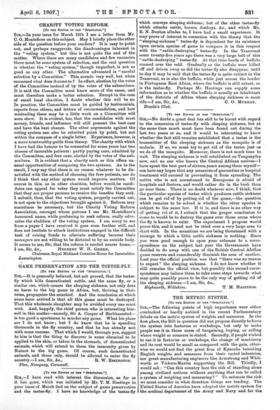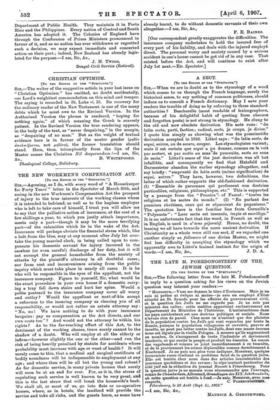THE METRIC SYSTEM.
[TO THE EDITOR OP THE ^sPscrsrca"l Stn,—The following points of high importance were either overlooked or hardly noticed in the recent Parliamentary debate on the metric system of weights and measures. In the first place, the Bill in question did not propose directly to force the system into factories or workshops, but only to make people use it in those cases of bargaining, buying, or selling where weight or measure is stated. - Secondly, if people wished to use it in factories or workshops, the change of machinery and its cost would be small as compared with the gain, other- wise we would not find the great firm of Kynochs banishing English weights and measures from their varied industries, nor great manufacturing engineers like Armstrong and Whit- worth or Vickers-Maxim supporting the Bill. Thirdly, would ask : "Can this country face the risk of standing alone among civilised nations without anything that can be called a system of weighing and measuring ? " To estimate the risk we must consider in what direction things are tending. The ',United States of America have adopted the metric system for the medical department of the Army and Navy and for the
Department of Public Health. They maintain it in Porto Rico and the Philippines. Every nation of Central and South America has adopted it. The Colonies of England have through the Conference of Prime Ministers pronounced in favour of it, and as no nation has ever withdrawn or regretted such a decision, we may expect immediate and concerted action on their part ; indeed, New Zealand has already legis- lated for the purpose.—I am, Sir, &c., J. H. Twmo, Bengal Civil Service (Retired).











































 Previous page
Previous page